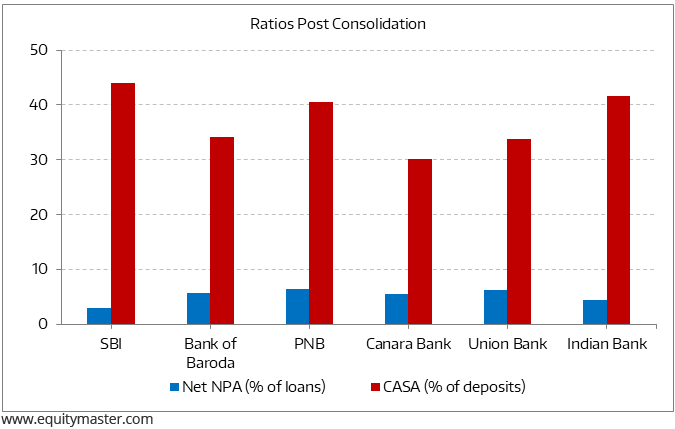India's Third Giant Leap
This Could be One of the Biggest Opportunities for Investors
- Home
- Todays Market
- Indian Stock Market News December 10, 2019
Sensex Opens Flat; Telecom and IT Stocks Lag Tue, 10 Dec 09:30 am
Asian stock markets are lower today as Chinese and Hong Kong shares fall. The Shanghai Composite is off 0.3% while the Hang Seng is down 0.02%. The Nikkei 225 is trading up by 0.1%. US stocks pulled back on Monday from near-record levels, as Apple and healthcare shares fell and investors braced for a busy week of political and economic news, including a potential turning point in the US-China trade dispute.
Back home, India share markets opened flat. The BSE Sensex is trading down by 25 points while the NSE Nifty is trading down by 7 points. Both, the BSE Mid Cap index and BSE Small Cap index opened flat.
Sectoral indices have opened the day on a mixed note with automobiles stocks and healthcare stocks witnessing buying interest. Telecom and IT stocks are trading in red.
The rupee is currently trading at 70.97 against the US$.
The rupee pared initial losses and settled 16 paise up at 71.04 against the US dollar on Monday amid softening crude oil prices and weakening of the greenback vis-a-vis other currencies overseas.
Fresh foreign fund inflows and positive developments on the US-China trade front also propped up the local unit.
At the interbank foreign exchange market, the rupee opened at 71.24 against the US dollar.
During the day, the domestic unit fluctuated between a high of 71.02 and a low of 71.27 and finally ended the day at 71.04 against the US dollar.
On Friday, the rupee had settled at 71.20.
As per the reports, volatility is expected to remain high not only for rupee as well as for the major crosses ahead of important FOMC and ECB policy statement and at the same time we are expected to get cues from the ongoing trade talks between US and China this week.
Speaking of currencies, Vijay Bhambwani, editor of Weekly Cash Alerts, tells you the main reasons why not to trade commodities and currencies the same way you would trade equities. Here's an excerpt of what he wrote...
- Currencies are traded in pairs and the most liquid is the USDINR. Currencies are traded in four decimal points just as bonds are. The international derivative trader's association has indicated that forex may be traded in 6 decimals in the coming few years.
It takes months sometimes for the currency pair to pass the next round figure, say from 70 to 71.
Can you really trade commodities and currencies alike or for that matter, equities and currencies alike? Definitely not!
To know more, you can read Vijay's entire article here: Is Trading in Equities, Commodities, and Currencies the Same?
Moving on to the news from the public sector banks space. Public sector banks (PSBs) returned to profitability in FY20, posting an aggregate profit of Rs 32.2 billion in the first half ending September.
PSBs had posted huge losses in FY18 and FY19 due to heavy provisioning for non-performing assets and other contingencies, the reports noted.
State-run lenders had posted aggregate operating profits during FY18 and FY19 of Rs 1556 billion and Rs 1538.7 billion respectively.
However, they made aggregate provisions for NPAs and other contingencies of Rs 2409.7 billion and Rs 2356.2 billion in FY18 and FY19, respectively.
This resulted in aggregate net losses of Rs 853.7 billion and Rs 817.5 billion in FY18 and FY19 respectively.
Speaking of PSBs, which banks look the best match post the latest matchmaking of PSU banks?
Needless to say, most investors would also be worried about the level of NPAs and current and savings accounts (CASA) of the merged entities.
Lower NPA ratio and sustenance of high CASA, in the future, could signal the banks' fitness levels to lend more.
But what could go unnoticed is the efficiency potential of the merged entities.
Post-merger, the employee per branch ratio of the consolidated PSU entities could be in the range of 7 to 9 per branch. This would be almost half that of their private sector counterparts like HDFC Bank and Kotak Bank.
India's Top 6 Public Sector Banks Are Getting Fitter
Leaner operations would mean use of technology to support growth.
So, we would not be surprised if the PSU entities leverage technology at a much bigger scale than their private sector peers, in a few years.
Meanwhile in her latest video, Tanushree Banerjee talks the huge potential of the PSU sector and the stocks that could be the big winners!
Tune in...
To know what's moving the Indian stock markets today, check out the most recent share market updates here.
For information on how to pick stocks that have the potential to deliver big returns, download our special report now!
Read the latest Market Commentary



Equitymaster requests your view! Post a comment on "Sensex Opens Flat; Telecom and IT Stocks Lag". Click here!
Comments are moderated by Equitymaster, in accordance with the Terms of Use, and may not appear
on this article until they have been reviewed and deemed appropriate for posting.
In the meantime, you may want to share this article with your friends!